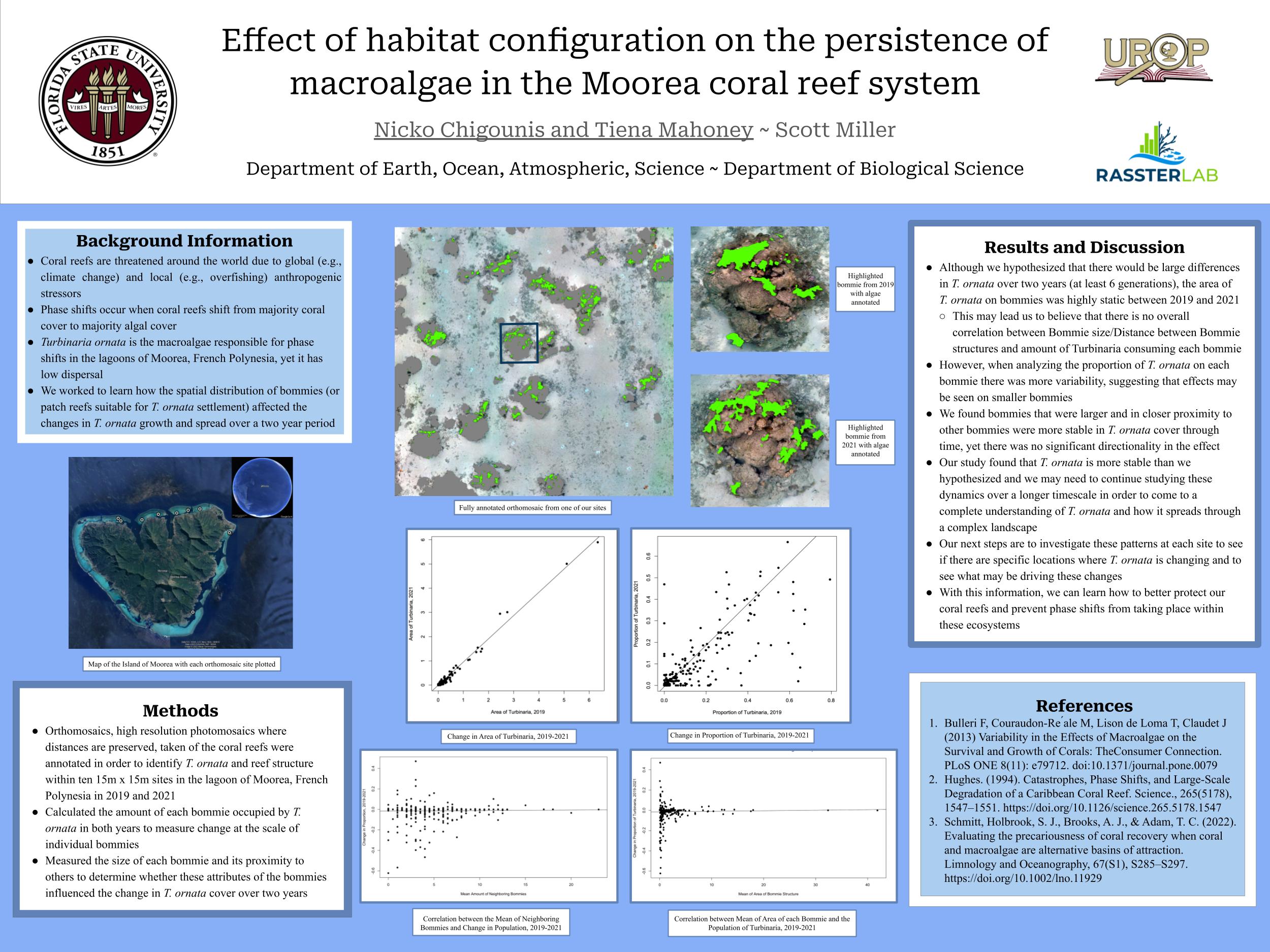Research Symposium
23rd annual Undergraduate Research Symposium, April 6, 2023
Tiena Mahoney Poster Session 3: 2:45 pm - 3:45 pm/ Poster #408

BIO
Tiena Mahoney is currently a sophomore studying Environmental Science. After graduation, they hope to pursue higher education studying Physical Oceanography. In their free time, they enjoy hiking, rowing, and spending time with their cat, Suki.
Effect of habitat configuration on the persistence of macroalgae in the Moorea coral reef system
Authors: Tiena Mahoney, Scott MillerStudent Major: Environmental Science
Mentor: Scott Miller
Mentor's Department: Department of Biological Sciences Mentor's College: College of Arts and Sciences Co-Presenters: Nicko Chigounis
Abstract
Coral reefs have been struggling for many years due to many factors, but a pertinent reason is phase shifts, which are when a coral bommie or habitable coral structure, shift from a healthy state to a macroalgae-dominated state. These phase shifts have been relatively well studied by ecologists, however, macroalgal species with low dispersal rates are not well studied. As more coral reef structures are affected by these phase shifts, it is becoming increasingly crucial to study the patterns of macroalgae growth. We focused on 10 sites around the island of Moorea, French Polynesia, each spanning 15x15 meters. We aimed to study the spread of Turbinaria Ornata across a variety of bommie sizes and distances. First, we created orthomosaics of each site and IDed the patches of Turbinaria, then we ran those annotations through GIS software to map the location and percent cover of each patch across the coral bommies. Next, we used R to analyze the distances between the bommies and their correlation with macroalgae growth between 2019 and 2021. We hypothesized that larger bommies and those in closer proximity to other bommies would experience less change in Turbinaria cover over time, while smaller bommies would have higher rates of change. This study can inform how habitat configuration can affect the spread and persistence of macroalgae in coral reef systems which then can provide a better understanding of how ecologists can better protect and prevent these phase shifts from occurring.
Keywords: Coral Reef, Marine Biology, Algae


